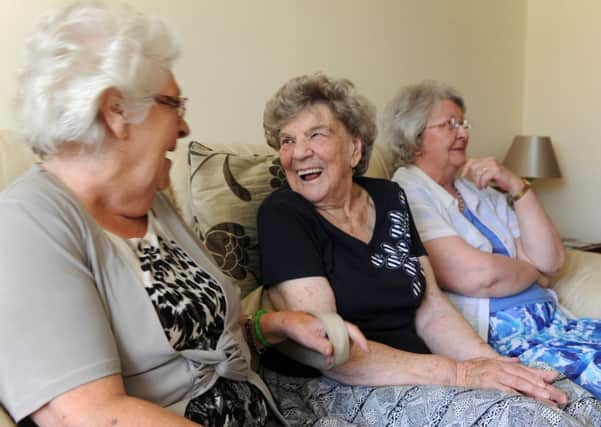Loneliness services at risk as councils fail to commit


As the The Yorkshire Post marks six months since it highlighted the devastating effects of social isolation in the region, we can claim a major boost to our campaign after four councils that previously came under fire pledged action.
But while good work is taking place elsewhere, vulnerable people could lose out in future, as five Yorkshire councils are still failing to prioritise the issue, the Campaign to End Loneliness has warned.
Advertisement
Hide AdAdvertisement
Hide AdWe first revealed the heartbreaking scale of loneliness in February, and since then the award-winning campaign has attracted high profile support from leading politicians and charities.


Then, nine local authorities in the region failed to significantly mention loneliness in their Health and Wellbeing Strategies - which identify and prioritise the health issues in the area for the coming years.
But one major local authority, Bradford, has become the first to write loneliness into their strategy since we launched, Kirklees has included isolation in an update on its strategy last month, and two more, Leeds and Barnsley, have pledged to include the issue in its next strategy.
However, many of the others will not be updated for several years, and campaigners fear this puts vital services at risk.
Advertisement
Hide AdAdvertisement
Hide AdLaura Ferguson, director of the Campaign to End Loneliness, partners in our campaign, said writing loneliness into health and wellbeing strategies showed a “commitment to tackling loneliness”.
She cited one example of an authority in the north west, which wanted to cut funding for hearing aids, but was challenged when it was pointed out how it would increase the risk of social isolation, and tackling that had been in its strategy.
She said: “Being able to refer back to strategy enabled the funding decision to be challenged. It draws a line in the sand, a marker of what is important.
“If there is work going on at the moment that is not linked to the strategy, our concern is that its relevance could be questioned in future if a change of political ruling or staffing comes about. Linking activities on the ground to the strategy shows a commitment to tackling the problem.”
Advertisement
Hide AdAdvertisement
Hide AdCalderdale, Doncaster, East Riding, Wakefield and North East Lincolnshire still fail to significantly mention loneliness in their strategies - but some, like Calderdale, which pledged £1m to tackling loneliness in April, are already doing work to tackle the issue.
Ms Ferguson said: “We do recognise that a lot can happen in an area without loneliness or isolation being in the strategy but our concern, and the reason we campaign for it, is that Health and Wellbeing boards have the responsibility to look across the whole population and identify needs and gaps - without including tackling loneliness, there is a danger that in times to come it will be missed.”
Think Tank CentreForum has called on the Government to put pressure on Health and Wellbeing boards to ensure loneliness is treated as a public health priority.
Associate Director James Kempton said: “The scale of loneliness won’t change until Health and Wellbeing Boards see it as a priority and invest in organisations that are working on the ground to tackle the problem.
Advertisement
Hide AdAdvertisement
Hide Ad“Loneliness is a personal tragedy and as a society we should be aiming to do more.”
A spokesperson for the Department of Health it gave power to Health and Wellbeing Boards to make sure that services work together in a way that better meets the needs of local people.